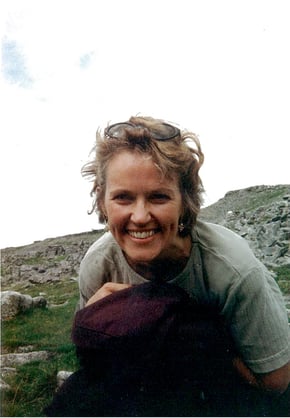New Year’s resolutions dominate our thoughts, conversations, and hopes at this time of year.
Minds and hearts populated with lists of resolutions for breaking old patterns and forging new beginnings look for the best advice for keeping them. Suggestions range from “write them down” to “practice affirmations for the new you” to “aim for progress, not perfection.”
Research shows however that even as early as mid-February, resolutions to lose weight, look for that dream job, end that toxic relationship have been abandoned or forgotten. Often our resolutions are too broad. We may want to change, but we are not committed to doing what it takes to achieve our goals or simply don’t know how. Breaking old patterns is hard, and our willpower, like our muscles, can become fatigued.
One simple change can create a cascade of changes in your life
So is there really one thing we could focus on that may require commitment but not willpower? You are probably already familiar with this simple idea. It has been heralded by self-help gurus and professional counselors as the source of true happiness, health, overall well-being, and spiritual peace. What is this miracle resolution?
Be grateful.
Practicing gratitude is seen as the first and fundamental step on the road to happiness.
We try to be thankful at Thanksgiving time, but why limit gratitude to a day?
"One Thousand Gifts"
Ann Voskamp, author of One Thousand Gifts, began writing down daily blessings as a challenge, a dare to live fully where she was, as she was—broken, wounded, and overwhelmed. In her words:
I named daily blessings, literally counting everyday gifts–all the way up to one thousand–more! But this is how the change started:
1. Morning shadows across old floors
2. Jam piled high on toast
3. Cry of a blue jay high in the spruce
She did not know at the time it would change her life, but it did. On her website she talks about the research she discovered to back up her experience:
Participants who’d kept a gratitude journal felt better about their lives as a whole and were more optimistic about the future… they were a full 25 percent happier than the other participants.
They sleep 1/2 hour more per evening, and exercise 33 percent more each week and felt more joyful, enthusiastic, interested, attentive, energetic, excited, determined, and strong.
Who would not welcome that kind of change?
Right now, can you think of at least three things you are grateful for? You can see from Voskamp's list how simple these “gifts” can be.
Being grateful always, even during hard times
I have a friend whose son, even though struggling to overcome his addiction, died of a drug overdose. At his funeral, although filled with sadness, she was heard to say she was grateful he died at home and not alone in the streets. Wow.
Keep looking for those little things: a kind word, a hot cup of coffee, a beautiful sunset, anything that makes you smile… and, like Voskamp, write them down in a notebook.
Perhaps there are things you take for granted? Fr. Spitzer suggests that gratitude for things you do have (rather than focusing on what you don’t have) is one of 6 things we should be thankful for.
This is a resolution you can keep.
May your list grow long, and as the new year moves along, may you come to glimpse the love of the Giver behind the gifts!
Read Also:
Fr. Spitzer Shares 6 Reasons to be Thankful this Thanksgiving

